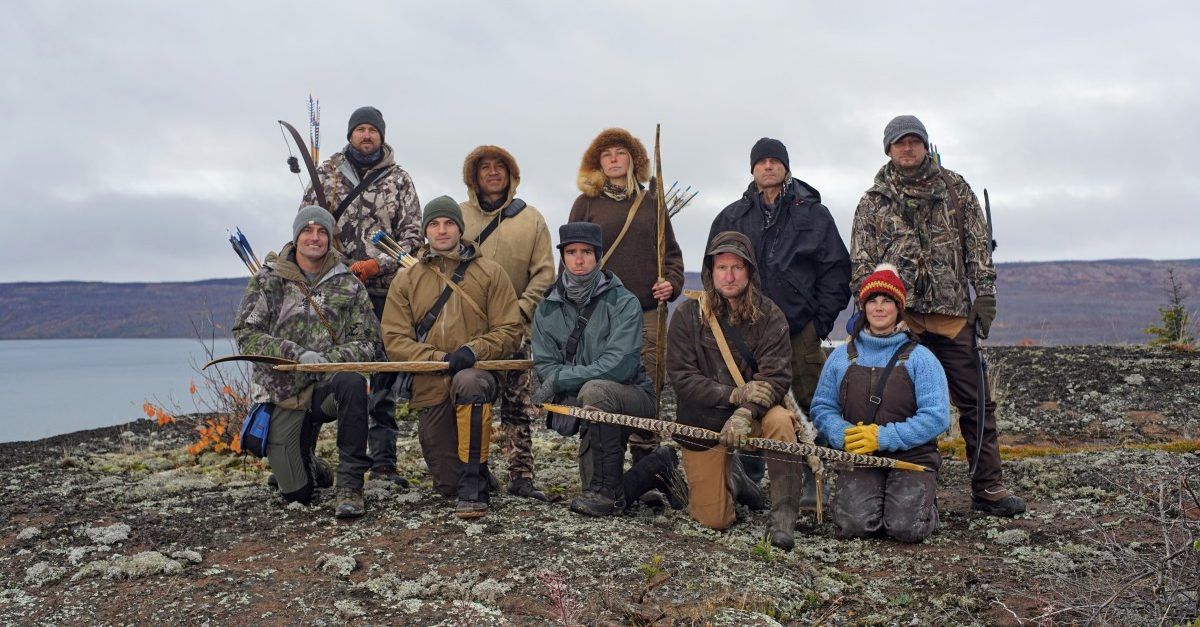It takes a lot of guts to go on a reality TV show. It takes even more guts to go on a reality TV show like, Alone, History Channel's documentary-style show where 10 people compete to see who can survive the longest in the wilderness - that's right, you guessed it, alone - to win $1 million. And we used to think Survivor was crazy! Contestants are pushed to their limits, armed with just a few survival equipment items and forced to eat anything they can find for sustenance. Contestants may "tap out" at any time, or they may be involuntarily removed by the medical experts who keep a close eye on the whole operation.
The eight seasons have each been filmed in a different remote location, mostly indigenous-controlled lands, like British Columbia, northern Mongolia, and Patagonia. But as with every reality show, you have to wonder, "How much of this is real?" It turns out...a lot of it! And fortunately, the things that aren't real don't really ruin the show for us. It's still absolutely as bananas as it seems. Here's everything we know about Alone.
10 They're Not THAT Alone.
The show works hard to push the perception that all of the contestants are completely isolated, miles and miles away from any sign of civilization. It turns out they're actually usually not far from human life, with most being within an hour's walk of a town, roadway, or campsite. To be fair, if they're not accessing these resources, it doesn't really matter how far away they are from civilization, right?
9 The Show Can Last For A Year.
Contestants are warned before going on the show that it could theoretically last for up to a year, depending on contestants' abilities to utilize their survival resources wisely enough to sustain themselves. Clocking in at 100 days, Roland Welker has lasted the longest of any winner in the show's history, during Season 7 when the format shifted a bit to stipulate that contestants had to last 100 days in order to win.
8 They Really Have Next To Nothing.
The list of prohibited items includes matches, fuel, sunscreen, Chapstick, bug spray, sunglasses, maps, beauty products, fishing rods, bait, ammunition, and more. Contestants are equipped with a satellite phone (for tapping out), a GPS tracker, wild animal repellant, a tourniquet and bandages, head lamp, small mirror, and a flotation device. They choose their survival items from a pool at the outset of the season.
7 There Is Regular Medical Oversight.
Naturally, the show doesn't want any fatalities on the show, so they set out to make the conditions as challenging as possible while still being safe - at least from death, though certainly not from significant illnesses or injuries. Contestants are checked by medical professionals at regular intervals with more frequent checks as the days go on. Medics will remove a contestant from the competition if they are truly in danger.
6 Contestants Are Responsible For Their Own Filming.
It's wild enough that the contestants have to survive out there in these extreme conditions - they actually have to be their own camera crew too! While turning the camera onto yourself while you're retching from eating something poisonous is probably the last thing you'd want to do, contestants are asked to do just that in order to document every part of their experience as realistically as possible.
5 There's No Faking This Level Of Skill.
Though contestants are equipped with an emergency ration of food and water to prevent fatalities, they really do have to do the rest of the hunting and gathering for themselves. No camera crew is sneaking them Cliff Bars on the side! The display of cleverness and skill on the show is truly impressive, with contestants utilizing creative methods of food acquisition like building a canoe in order to catch shellfish or in one case even fashioning a fish trap out of a plastic bottle.
4 The Physical Toll Is No Joke.
Many contestants have lost a staggering amount of weight, as much as 80 pounds for one man, or come dangerously close to organ failure. Others have tapped out due to food poisoning, impacted bowels, hypothermia - even cutting an arm or a tendon with an ax. Even without death on the table, these physical demands are no joke.
3 The Psychological Stress Is All Real.
As you can imagine, these conditions bring people to their physical, mental and emotional edge, and then go beyond it. Viewers can witness the contestants' psychological states deteriorating the longer the show goes on and diehard fans will be able to spot the early telltale signs that a contestant is coming apart at the seams. An accident or an event, such as an injury or a storm, might be a catalyst for an already-weakened contestant calling it quits.
2 The Show Really Brings Out Contestants' Humanity.
Of course, the only reason we like any show, reality or scripted, is because of the human element, the stories and the relationships that make it worth watching at all. It's fascinating to watch contestants' survival journeys that often end with heartbreaking and profoundly human moments. Some missed their partners and families. Some felt that they'd done all they could do and were at peace with leaving. Some found they simply didn't like being alone.
1 Non-Winners Are Still Compensated.
Past contestant Sam Larson explained on a Reddit thread that people are paid a small weekly stipend for being on the show, which continues to apply for any pre- or post- production work they do. It's certainly not anywhere near comparable to the winner's chunk of change, but Sam divulges that it is more than most reality shows' payouts.

